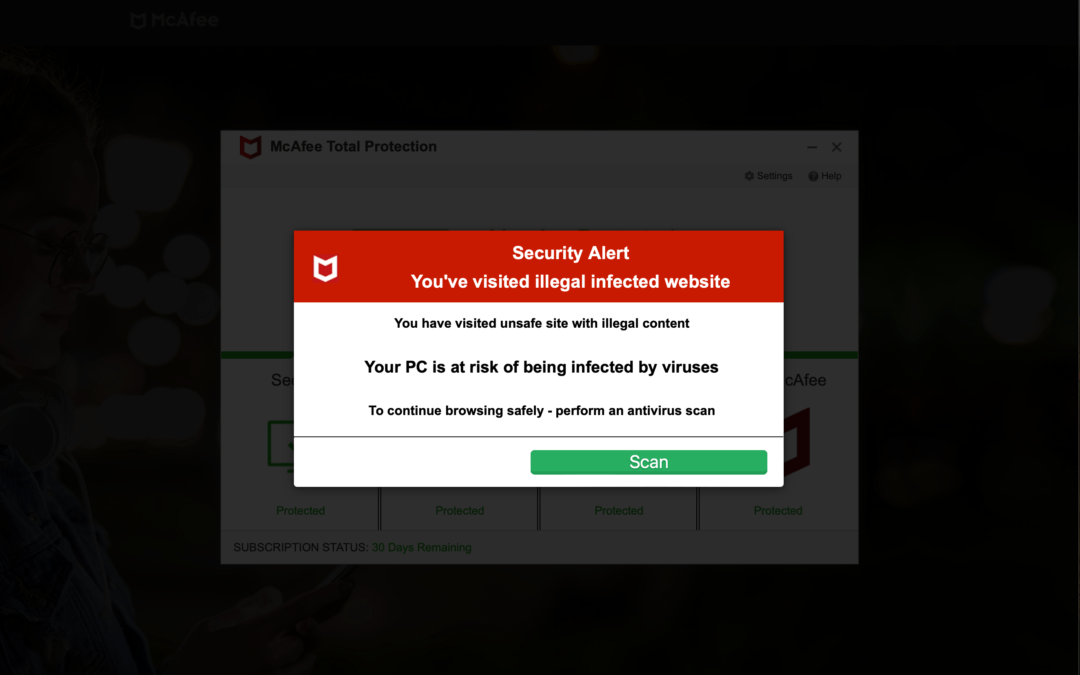Avoid Scams on a Mac: Tips from MacEdge
By Anthony Fiandaca & Sophie Spaan
At MacEdge in Portsmouth, NH, we frequently help customers address security issues on their Macs, iPads, and iPhones. While Macs are known for their robust security features, no user is completely immune to scams. Over time, we’ve seen an increase in the number of scam attempts targeting users. Whether it’s through deceptive emails, malicious ads, or fraudulent websites, scammers are finding new ways to trick unsuspecting users.
Here, we’d like to share some of our insights and tips to help you stay safe.
Recognizing and Avoiding Sponsored Search Ads
One of the most common ways users are tricked is through sponsored search ads. Scammers can purchase ad space on search engines like Google or Bing, often using popular search terms like “Amazon” or “Apple Support” to lure in victims. These ads are designed to look legitimate, but clicking on them can lead to malicious websites or phishing attempts.
How to Spot Sponsored Ads
By law, search engines are required to indicate which results are advertisements. Look for labels like “Ad” or “Sponsored” next to the link. While some legitimate companies use ads for visibility, it’s always safer to scroll past these sponsored links and go directly to the company’s official website.
Why Are Sponsored Links Dangerous?
Because anyone can pay for ad space, it’s difficult to know who is behind these ads. Scammers can create ads that look just like the real deal but direct you to harmful websites or trick you into calling fake support numbers. Once connected, they may try to gain remote access to your device, potentially compromising your data and security.
How Safari on Mac Helps Protect You
Apple’s Safari browser includes built-in security features designed to keep you safe while browsing. It blocks third-party trackers, prevents websites from collecting your browsing data, and warns you when you’re visiting potentially harmful sites. Enabling these features can help protect your privacy and reduce the risk of falling victim to online scams.
What to Do If You See a Virus Popup
If you encounter a popup claiming your Mac is infected with a virus, do not call the number provided. This is a common scam tactic designed to panic you into seeking help from fake support services. These scammers may then try to convince you to install software that gives them access to your computer.
Steps to Take:
- Don’t click on any links or call any numbers in the popup.
- Force quit Safari by holding down the
Option,Command, andEsckeys. - Restart your Mac and avoid visiting the site again.
If you’ve already called the number or allowed a scammer to access your Mac, power off your device immediately and schedule an appointment with us at MacEdge. We’ll help you remove any unwanted software and secure your device.
General Tips for Avoiding Scams
- Do not call any support number that isn’t listed on the official website of the company. For example, Facebook does not offer phone support.
- Never install remote access software like TeamViewer or AnyDesk unless you are sure the person requesting access is reputable.
- Always check the sender’s email address. Just because the sender’s name says “Amazon” or “Apple” doesn’t mean it’s legitimate.
- Never buy gift cards as a form of payment unless it’s for an actual gift. Scammers often ask for gift cards because they’re hard to trace and non-refundable.
Need Help? Contact MacEdge
If you think you’ve been targeted by a scam or need help securing your Mac, schedule an appointment with us at MacEdge. Our team can help remove any malicious software, ensure your device is secure, and guide you on best practices for staying safe online.
Also read: Audit Devices on Your Apple ID, Quishing
Resources
https://support.apple.com/en-us/102568
https://consumer.ftc.gov/articles/how-spot-avoid-and-report-tech-support-scams#Spotting
Report these scams to: reportfraud.ftc.gov


